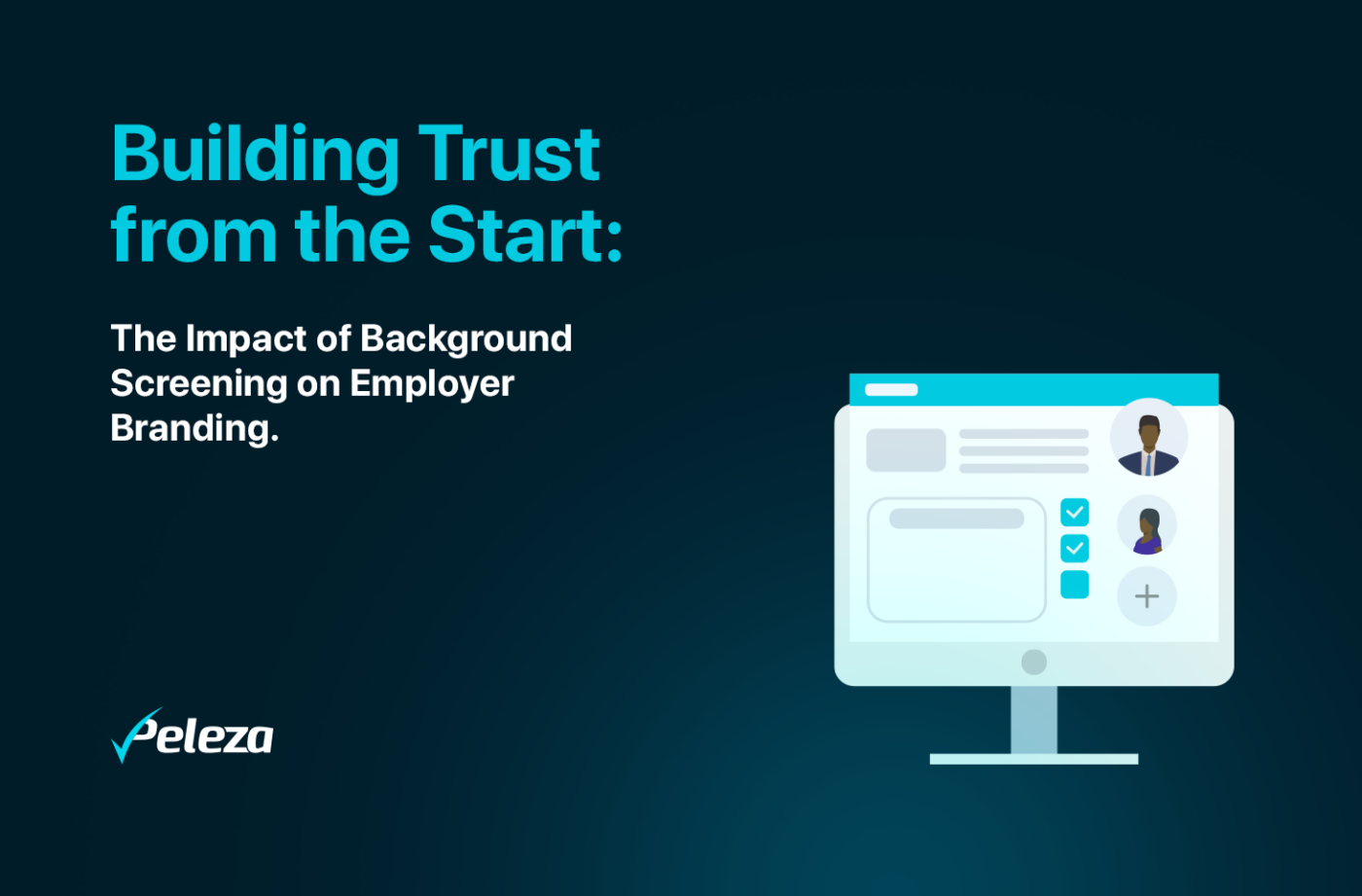Building Trust from the Start: The Impact of Background Screening on Employer Branding.

In the fast-paced race to secure top-tier talent, the importance of employer branding cannot be overstated. As companies vie for the top spots in the rankings of desirable workplaces, the strategic approach to background screening emerges as a crucial determinant of their standing. Beyond being a mere procedural step, the intricacies of the background check process play a pivotal role in shaping the rankings of employers in the eyes of potential candidates.
A company’s commitment to transparency and reliability in background screening is not just about adhering to best practices; it’s a strategic move to enhance its position in employer rankings. By demystifying the background check process, organizations not only safeguard their reputation but also actively contribute to elevating their standing among competitors.
In this article, we will delve into the multifaceted relationship between background screening, employer branding, and rankings in the talent acquisition landscape. We’ll explore how an open and trustworthy approach to background checks can influence rankings, fostering a positive perception that resonates with high-caliber candidates. As we navigate the complexities of today’s job market, join us in understanding how transparent background screening can be a transformative factor, propelling organizations to the top of the list for top-tier talent.
Understanding the Basics of Background Checks.
A background check is a comprehensive investigation into an individual’s past, encompassing aspects such as criminal history, employment track record, educational background, and personal history. According to a study by the Society for Human Resource Management (SHRM), a substantial 86% of organizations conduct background checks on all job candidates, aiming to make informed hiring decisions and mitigate potential liabilities.
Navigating the Background Check Process: While the idea of conducting background checks may seem daunting, it can be streamlined by grasping the fundamentals and partnering with reputable screening providers. These providers access various databases to compile reports for employers. It is crucial to note that the accuracy and currency of background check results may vary. Informed Consent and Legal Considerations: To conduct a background check, employers often require candidates to provide written consent, demonstrating transparency in the process. Adhering to federal regulations, particularly the Fair Credit Reporting Act (FCRA), employers must follow specific procedures, including obtaining permission, notifying candidates about the use of information, and providing adverse action reports if necessary.
Types of Background Checks.Common background checks include:
Criminal History: Essential for employers, a criminal history check verifies if an applicant has engaged in prior criminal activities. Its primary goal is to assess whether a candidate poses a potential risk to the company, its customers, or employees. This check includes examining national and state criminal databases, court records, and sex offender registries. Additionally, it involves scrutinizing global terror watch lists. This thorough process ensures a comprehensive evaluation of an individual’s criminal history, aiding in informed decision-making during the hiring process.
Employment History: Crucial in background screening, past employment verification is pivotal for assessing a candidate’s suitability. It ensures accuracy in claimed employment history, providing insights into job stability, roles held, and more. The process reveals details like start/end dates, positions, responsibilities, reasons for exits, and compensation. Detecting exaggerated claims, this verification serves as an indicator of a candidate’s honesty, aiding employers in making informed hiring decisions.
Education Verification: Education verification is a crucial step in background checks, confirming the accuracy of a candidate’s academic claims. Despite its sometimes perceived lower priority, this process addresses the common issue of exaggerated educational achievements. Unverified claims in this area can significantly impact hiring outcomes. Moreover, for certain roles with legal requirements for specialized education or certification, education checks are essential to ensure compliance and accuracy in information presented to authorities when needed.
Credit Background Check: This examination delves into a candidate’s credit history, drawing information from reputable credit agencies. In adherence to regulations in various countries/states, the individual is typically informed, and explicit permission is sought before conducting credit checks. The primary goal is to assess the financial responsibility of the potential hire. Particularly crucial for senior roles in the finance and financial services industries, this check holds significant weight in the hiring process.
Reference Check: Employers commonly request candidates to provide references for evaluating work-related qualities. This process helps verify professional competencies, ethics, leadership, and teamwork. Conducted through mail, in-person meetings, or telephone calls, the latter is the most practical, allowing dynamic communication at a lower cost.
Employers can choose to perform these checks in-house or enlist specialized screening companies that utilize commercial databases collecting information from public records. State Regulations and “Ban-the-Box” Laws: Many states have implemented laws governing the timing and content of background checks. “Ban-the-box” legislation, for instance, prohibits employers from inquiring about a candidate’s criminal history on job applications. Complying with such regulations not only prevents discrimination but also reinforces a company’s commitment to fairness and inclusivity.
The Impact of Background Checks on Employer Branding.
Improving the Quality of New Hires: Enhancing employer branding by ensuring a commitment to hiring the best candidates. Avoiding legal issues and saving time and resources by identifying any discrepancies in candidate information.
Avoiding Hiring Disqualified Candidates: Demonstrating thoroughness in the hiring process to avoid negative impacts on employer branding. Enhancing safety and competence perceptions by ensuring all employees are qualified for their roles.
Mitigating Legal Liability: Shielding the company from potential legal consequences by conducting background checks. Communicating a commitment to lawful practices, contributing to a positive employer brand.
Building Trust with Customers: Instilling confidence in customers by demonstrating a commitment to safety and thorough vetting. Enhancing employer branding by showcasing dedication to customer well-being and trustworthiness.
Conclusion.
In summary, background checks are integral to employer branding. They contribute to the recruitment of qualified candidates, mitigate legal risks, and build trust with both employees and customers. Employers should prioritize incorporating background screening into their hiring processes to enhance their brand image and attract top-tier talent.
About Peleza: Peleza is a leading background check, KYC/KYB company automating and optimizing the hiring process. From small businesses to industry giants, Peleza offers fully customizable, world-class features that foster a rich and immersive hiring experience. By leveraging Peleza’s services, companies can establish merit-based, objective, and fair hiring practices that minimize bias without dehumanizing the hiring process. Learn more about Peleza’s offerings here.

